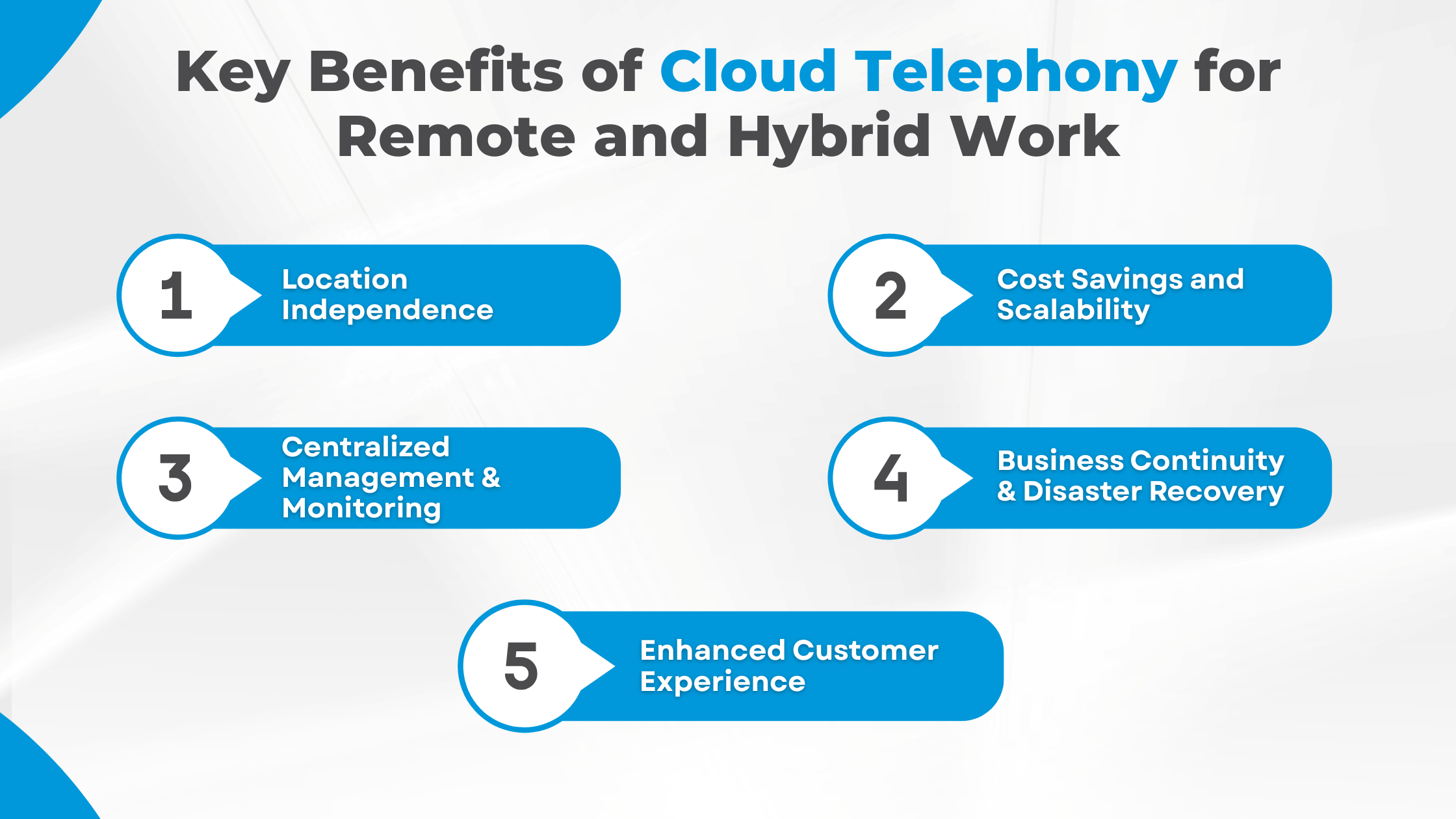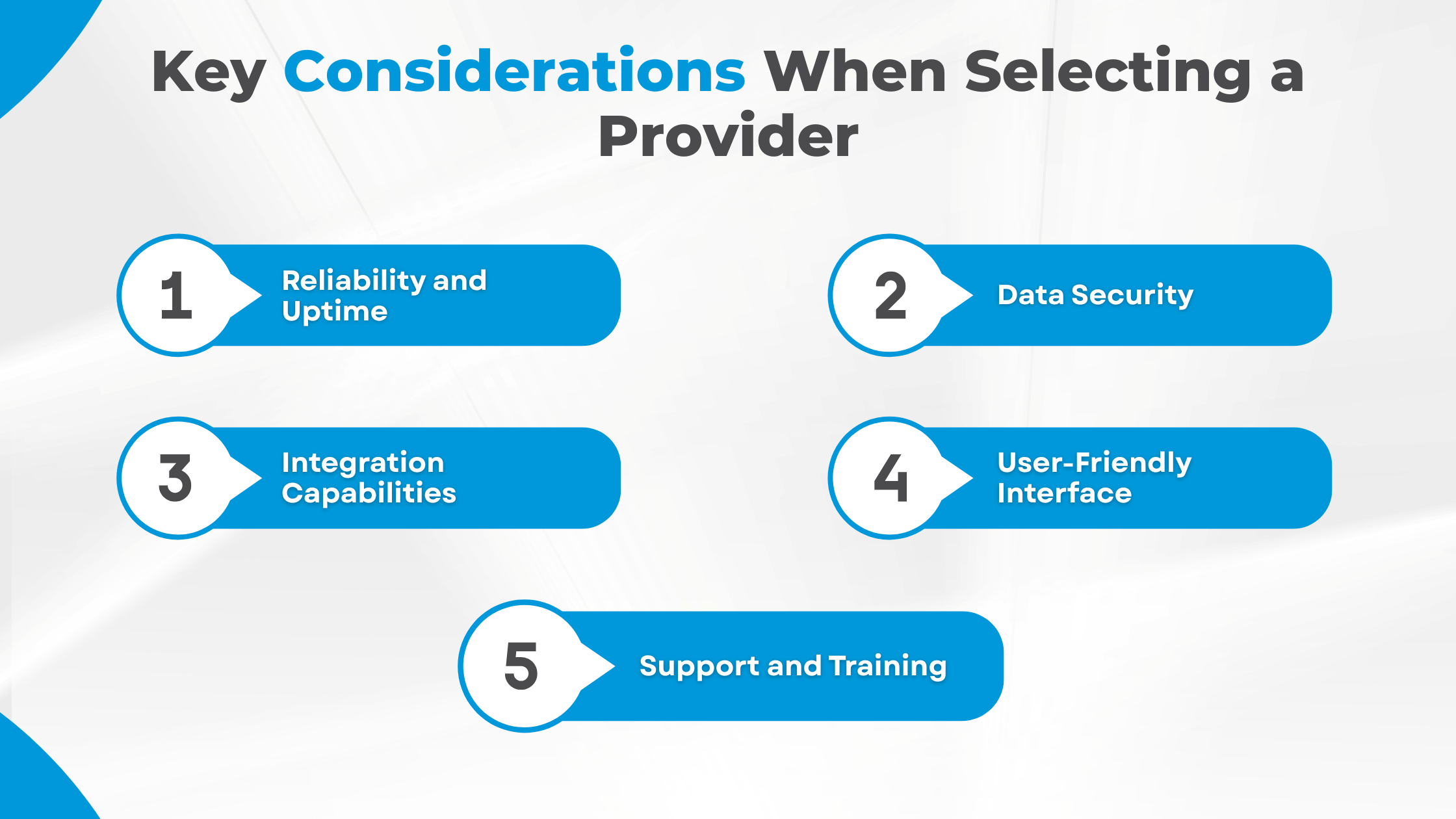In recent years, the way we work has undergone a transformative shift. Remote and hybrid work models have moved from being optional perks to fundamental elements of modern business strategies. With this transformation, communication systems have needed to evolve rapidly to support decentralized teams. Among the technologies leading this evolution is cloud telephony, a powerful enabler of seamless, scalable, and efficient communication.
Especially in a dynamic and fast-growing digital economy like India, businesses of all sizes are leveraging cloud telephony in India to redefine collaboration, customer service, and operational agility. In this blog, we will explore how cloud telephony underpins remote and hybrid work models and why choosing the best cloud telephony providers in India, like Kommuno, can make a world of difference.
Cloud telephony, also known as hosted telephony or VoIP (Voice over Internet Protocol), is a communication technology where telephone systems are hosted on the cloud rather than traditional on-premise PBX (Private Branch Exchange) systems. It enables voice communication through internet-connected devices such as laptops, smartphones, or IP phones, eliminating the need for physical infrastructure or geographic proximity.
In a typical cloud telephony solution in India, calls can be routed through cloud servers and managed through an online dashboard. This setup allows employees to make and receive calls from anywhere with internet access, supporting flexibility and continuity in today’s distributed work environments.
The remote work trend, accelerated by the COVID-19 pandemic, has now matured into a sustained business model. While some companies remain fully remote, many others are embracing hybrid models that combine remote work with in-office days. This new normal demands tools that are not only flexible but also secure, scalable, and reliable.
Traditional phone systems, which depend on physical office lines and hardware, fall short in this context. That’s where cloud telephony in India steps in, offering a more adaptive, cost-effective, and efficient approach to communication.

With Kommuno’s cloud telephony, employees can access the office phone system from virtually anywhere, whether they are at home, in a co-working space, or travelling. Calls can be made or received through laptops or mobile apps, ensuring uninterrupted communication. This feature is critical for remote teams spread across multiple cities or even countries.
In India, where many businesses operate with regional teams, cloud telephony in India offers a seamless communication bridge, regardless of physical location.
Setting up traditional PBX systems can be expensive, involving installation, maintenance, and hardware upgrades. Cloud telephony eliminates these costs by offering a pay-as-you-go model. Businesses can scale up or down based on current needs, ideal for startups and enterprises alike.
Several cloud telephony solution providers in India offer flexible pricing plans, helping businesses manage costs while expanding their operations or workforce.
Cloud telephony platforms offer a centralized dashboard for administrators to manage call flows, analyze call data, set up IVRs (Interactive Voice Responses), assign extensions, and monitor performance. This visibility is crucial for ensuring productivity in a distributed work setup.
Managers can track KPIs, monitor service levels, and get real-time insights into team performance without being physically present in the same office.
In case of power outages, natural disasters, or technical failures, cloud systems provide automatic failover and backup mechanisms. This ensures that business operations continue smoothly without downtime.
Especially in geographically diverse regions across India, where infrastructure reliability may vary, cloud telephony in India offers a robust alternative that protects against unforeseen disruptions.
Cloud telephony supports advanced features such as call routing, IVRs, call queuing, voicemail-to-email, and more. These features improve customer service efficiency and satisfaction, even when agents are working remotely.
Customers don’t notice any difference in service quality whether they are calling an office or reaching an agent at home. The experience remains professional and streamlined.
Selecting the right cloud telephony solution in India is crucial for maximizing the benefits of remote and hybrid work models. Start by evaluating providers based on reliability, ensuring they offer high uptime and minimal call drops. Security should be a top priority; look for providers that offer encryption and comply with data protection regulations. Integration capabilities are equally important; a solution that syncs seamlessly with your CRM, helpdesk, and collaboration tools will streamline workflows. Ease of use also matters; a user-friendly dashboard simplifies call management and minimizes training time.
Additionally, prioritize providers that offer responsive customer support, onboarding assistance, and customizable features tailored to your business size and needs. Several of the best cloud telephony providers in India, like Kommuno, also offer flexible pricing models, allowing companies to scale up or down with ease. Making an informed choice ensures consistent communication, improved productivity, and long-term business continuity.

Look for providers who guarantee high availability (ideally 99.9% uptime). Service disruptions can significantly impact business operations and customer relationships.
With remote work, data security becomes even more critical. Ensure that your provider complies with global standards like ISO certifications, offers end-to-end encryption, and has robust data protection policies in place.
The best solutions integrate with CRM systems, helpdesks, and collaboration tools such as Slack, Microsoft Teams, or Zoho. Seamless integrations enhance workflow efficiency.
An intuitive and easy-to-use interface ensures quick adoption by employees and reduces the burden on IT teams.
Choose from the best cloud telephony providers in India who offer 24/7 support, onboarding assistance, and training resources to ensure a smooth implementation.
Remote call centers can operate efficiently using cloud telephony. Supervisors can monitor agent performance, access call recordings, and make adjustments in real-time, even when teams are working from different locations.
Sales professionals on the move can access calls, customer data, and history from anywhere, ensuring they never miss a lead or follow-up opportunity.
HR teams can use cloud systems to manage employee outreach, interview scheduling, onboarding calls, and internal helpdesks.
Voice broadcasting and IVR campaigns can be run without requiring agents to be physically present in an office. Cloud systems automate much of this outreach and allow remote campaign management.
As businesses continue to embrace flexible work models, cloud communication will evolve to offer even more intelligent and integrated services. We can expect AI-driven call routing, sentiment analysis, automated transcriptions, and deeper CRM integrations to become standard.
Moreover, government initiatives in India aimed at boosting digital infrastructure will likely enhance internet reliability and cloud adoption, making cloud telephony in India even more accessible and efficient.For businesses aiming to stay competitive and agile, investing in cloud telephony is no longer optional; it’s a strategic necessity.
Remote and hybrid work models are here to stay, and businesses must equip themselves with the right tools to support this shift. Cloud telephony is one such tool that ensures communication remains seamless, efficient, and scalable, regardless of where employees or customers are located.
By opting for the best cloud telephony providers in India like Kommuno, businesses can not only adapt to the current work environment but also future-proof their operations. Whether it’s for customer support, sales, marketing, or internal communication, cloud telephony is a foundational technology that supports business continuity, collaboration, and growth in an increasingly digital and distributed world.
If your organization is yet to adopt a cloud telephony solution in India, now is the time to make the move and unlock a more connected, productive, and flexible future with Kommuno.
Elevate Your Business Game with Kommuno – The best way to stay connected to customers!
Copyright ©2024 All Rights Reserved | Kommuno Technologies Pvt Ltd
Copyright ©2024 All Rights Reserved | Kommuno Technologies Pvt Ltd